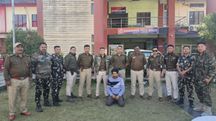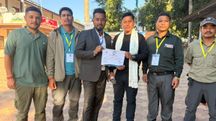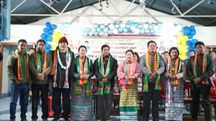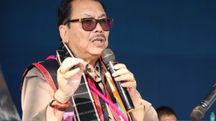Arunachal: Symposium on tackling money culture in politics hosted in Pasighat
The focal point of discussion? The pervasive issue of 'Money culture in politics - a threat to Democracy.'
 Arunachal: Symposium on tackling money culture in politics hosted in Pasighat
Arunachal: Symposium on tackling money culture in politics hosted in PasighatIn anticipation of the upcoming assembly and parliamentary elections, the Political Science Department of Jawaharlal Nehru College (JNC) in Pasighat took a proactive stance by organizing a state-level symposium. The focal point of discussion? The pervasive issue of 'Money culture in politics - a threat to Democracy.'
Distinguished guests, including Prof. Nani Bath from Rajiv Gandhi University and Group Captain Retired, Mohonto Pangging Pao, shed light on the detrimental effects of money in politics. The event, graced by East Siang Deputy Commissioner, Tayi Taggu, witnessed the active participation of esteemed figures such as Registrar Narmi Darang and Doying Gumin College Principal, Dr. Egul Padung.
During the inaugural session, DC Pasighat, Tayi Taggu stated the collective responsibility in combating the influence of money in politics, urging voters to resist the temptation of monetary inducements. Echoing this sentiment, Narmi Darang and Dr. Egul Padung emphasized the need to level the electoral playing field for genuine and underprivileged candidates.
Retired Group Captain Mohonto Pangging Pao highlighted the correlation between Arunachal Pradesh's relatively smaller population and the prevalence of money culture in politics. He proposed delimitation of constituencies as a potential solution to mitigate this issue.
Prof. Nani Bath, speaking as a resource person highlighted the need for systemic changes to address corruption and money culture, including potential legal action to challenge existing constitutional provisions.
Danggen Dameng, the Head of the Political Science Department at JN College, Pasighat, stated the relevance of the symposium in light of Chief Minister Pema Khandu's recent concerns about money culture in politics. Tapin Lute Tamin, an alumni of JNC Pasighat, further delved into the topic by highlighting the prevalence of money culture even in student politics.
Copyright©2025 Living Media India Limited. For reprint rights: Syndications Today









